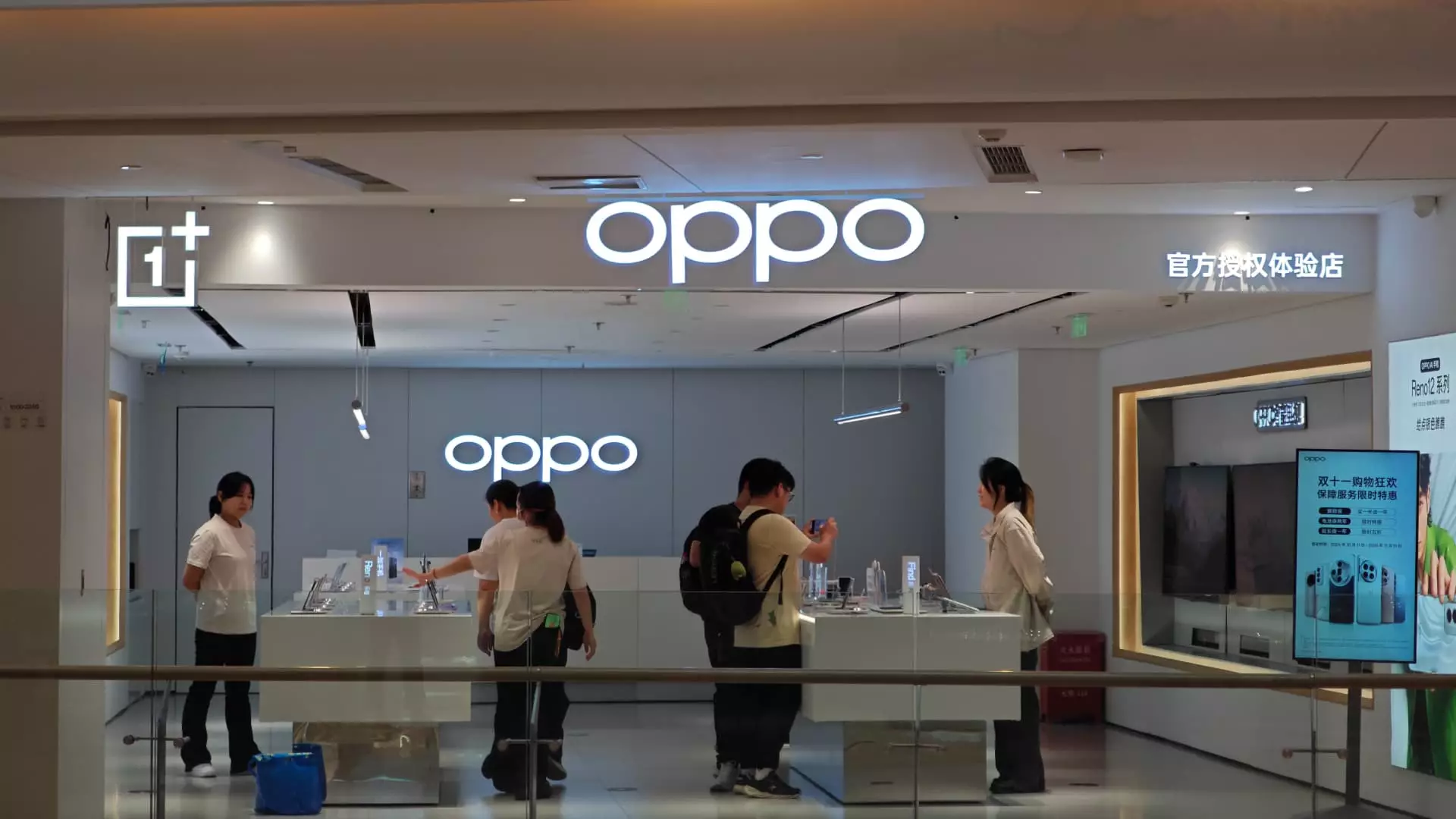In a rapidly evolving tech landscape, Chinese smartphone titan Oppo is intensifying its focus on artificial intelligence (AI) as it prepares for the overseas launch of its flagship phone. This strategic pivot comes amid weekly discussions with industry giants like Google and Microsoft, highlighting a commitment to unveil advanced AI capabilities aimed at enhancing user experience. The current momentum in generative AI, characterized by its ability to generate human-like responses, has ignited a fierce competition among tech giants from Apple to Honeywell, all eager to leverage these innovations for consumer applications.
Oppo’s trajectory suggests a significant investment in understanding consumer pain points, with Billy Zhang, the company’s president for overseas markets, emphasizing a collaborative spirit with tech partners. “Google will also come to China to ask us what needs and pain points you have with your products? Let’s solve them together,” he stated, underscoring a proactive approach to product development. Oppo’s deep understanding of consumer needs signals its ambition to not just participate but also lead in the AI integration race.
Oppo’s strategic expansion is particularly notable in Europe, with its international market representing a substantial portion of its revenue. The company’s focus on Southeast Asia and Europe, where approximately 60% of its income is generated, reinforces its ambition to increase its competitive edge against titans like Apple and Samsung. Despite current U.S. limitations on chip exports to China, experts predict that Huawei and other Chinese firms, such as Oppo, may excel in the consumer application of AI technologies.
In the third quarter of the year, Oppo ranked fourth globally in smartphone shipments, claiming 9% of the market. The competition is rife, with Samsung and Apple in a tussle for the top position. As the smartphone landscape evolves, the integration of generative AI tools promises to redefine user interaction across various consumer devices, fostering greater engagement and satisfaction.
Oppo’s forthcoming flagship smartphone is expected to showcase AI writing and summarization features sourced from Google’s Gemini, along with content generation capabilities from Microsoft. While details on the extent of AI functionality in existing devices remain vague, the company’s decision to embed generative AI in 50 million devices this year marks a significant maneuver to position itself as an innovative leader.
Zhang’s optimism about AI’s transformative potential in technology is evident. He expresses confidence that AI will revolutionize all sectors, calling it “the most important area for tech in the future.” According to a recent study by Counterpoint Research, the anticipated surge in generative AI smartphone shipments—projected to increase to 732 million by 2028 from a mere 46 million last year—affirms the coming wave of AI-driven innovations.
Oppo has already begun integrating AI capabilities into an array of functional areas, from enhancing photo-editing capabilities to developing a ChatGPT-like virtual assistant. Furthermore, the incorporation of AI within manufacturing processes showcases a dual commitment to technological advancement and operational efficiency.
Oppo’s embrace of automation illustrates a broader trend towards digital transformation in manufacturing. The company has begun to replace conventional labor with advanced machinery to optimize production quality and reduce costs. In its Dongguan facility, around 8% of the workforce has been replaced by machines, reflecting a growing reliance on technology to produce high-quality smartphones more efficiently.
This shift in workforce dynamics also extends to the company’s operational strategy, as employees are redeployed to engage in more intricate tasks that align with their skillsets. “Automation improves quality and stability, lowers production costs, and increases unit yield,” Zhang notes. As a result, Oppo has reduced its manufacturing costs by nearly 40% over the past three years, while simultaneously decreasing production time from 16 days to just 6 days—allowing for a more responsive manufacturing model that adapts swiftly to market demands.
Oppo’s strategic initiatives in artificial intelligence and automation signify a decisive step towards redefining the smartphone market and consumer interaction. By leveraging partnerships with tech giants and harnessing the capabilities of AI, Oppo is poised to not only retain its competitive edge but also push the envelope in delivering innovative products to consumers. The company’s journey into AI is indicative of a larger trend across the tech industry, where the fusion of software and hardware is set to define the future of smartphones and beyond. As the landscape continues to evolve, Oppo’s dedication to embracing AI and technology will undoubtedly leave a significant mark on global markets for years to come.

